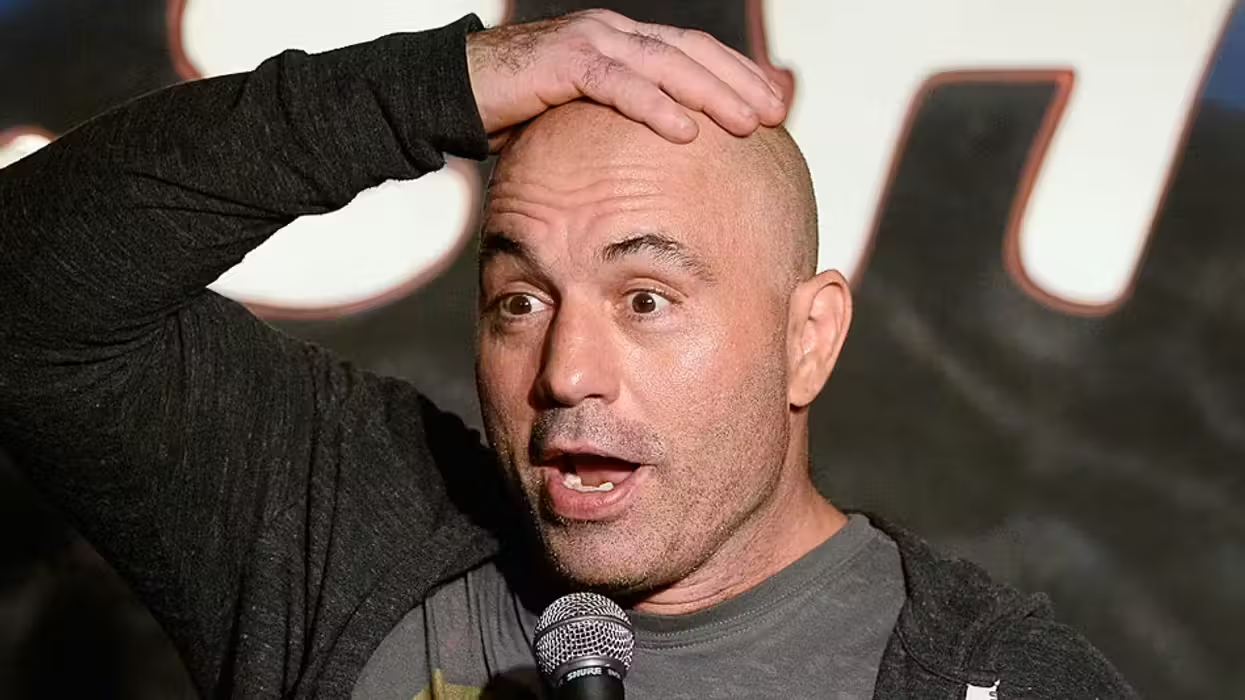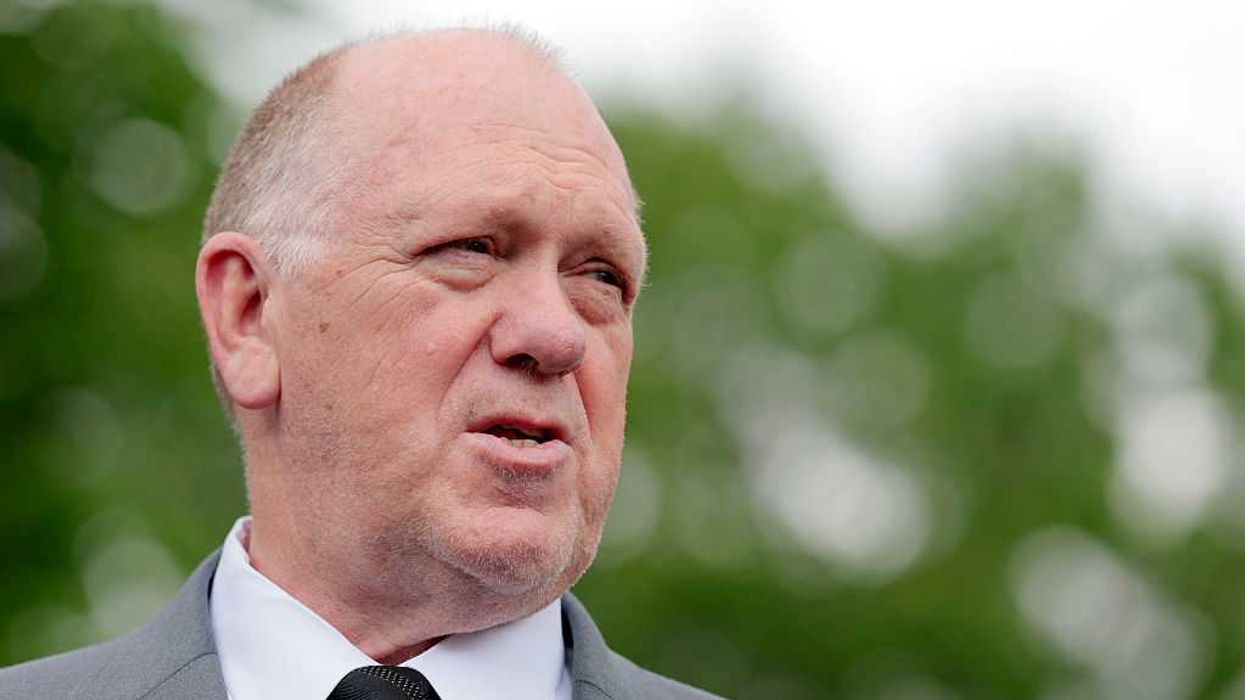© 2025 Blaze Media LLC. All rights reserved.
"I'm a little bit nervous."
TOPEKA, Kan. (AP) — Although fixing the economy is the top priority, Republicans who won greater control of state governments in this month's election are considering how to pursue action on a range of social issues, including abortion, gun rights and even divorce laws.
Incoming GOP governors and legislative leaders across the nation insist they intend to focus initially on fiscal measures to spur the economy, cut spending and address state budget problems.
"At this point, the economy dominates everything, and until the economy is turned around and our fiscal house put in order, there's not going to be a lot of appetite for anything else," said Whit Ayres, a pollster in Alexandria, Va., whose firm did research for several GOP candidates in the midterm race.
But the pressure to go further, as soon as possible, is only slightly below the surface in states where conservatives' top social goals have been foiled for years by Democratic vetoes and legislative obstacles.
The tension is particularly visible in Kansas, where the victory by Gov.-elect Sam Brownback, a strong opponent of abortion and gay marriage, has created strong expectations among evangelical supporters.
A similar scenario is taking shape in strongly conservative Oklahoma, where a Republican governor will replace a Democrat, and to a lesser extent in Michigan, Wisconsin and several other states.
Some Republican legislators are already worried about getting bogged down in volatile issues or conflicts between wings of the party. But, if the different agendas can be harnessed, an election largely driven by voters' economic concerns could wind up having much broader social consequences.
"I'm a little bit nervous," said Rep. Dean Kaufert, a Republican state House member in Wisconsin, where Republicans, including incoming governor Scott Walker, campaigned on enacting tough immigration legislation and banning embryonic stem cell research. If Republicans overreach, "the danger is the citizens of the state will just say we'll clean house again and we're going to keep doing it until we get it right," he said.
But some conservatives said they won't wait forever. "We're not going to spend the next 18 months doing nothing but economic issues," said Wisconsin Republican Sen. Glenn Grothman, an advocate of tougher abortion restrictions.
GOP candidates in the midterm election successfully wooed independent voters and those upset with President Barack Obama and the agenda of the Democratic-controlled Congress. But abortion opponents and socially conservative evangelical Christians are a key party constituency.
This year's vote gave Republicans control of 29 governorships, including 11 held previously by Democrats. The GOP significantly strengthened its position in many state legislatures.
The GOP won all statewide races on the ballot in Kansas for the first time since 1964. Republicans picked up 16 seats in the state House, giving the GOP an overwhelming 92-33 advantage.
Abortion opponents now plan to make the state as close to an abortion-free zone as possible. Proposed measures would impose new regulations for clinics, restrictions on late-term procedures and increased reporting requirements for physicians. Vetoes by outgoing Democratic Gov. Mark Parkinson and his predecessors blocked such action in the past.
House Judiciary Committee Chairman Lance Kinzer, who serves on Brownback's transition team, said action against embryonic stem cell research and to allow "covenant" marriages, which are harder to dissolve than standard marriages, are likely to be considered, too.
"There's a lot of unfinished business out there, isn't there?" Kinzer said.
In Oklahoma, where Republicans won all eight Democrat-held statewide offices, GOP lawmakers are planning to bring back firearms bills vetoed last year by outgoing Democratic Gov. Brad Henry. They include a bill to allow the open carrying of firearms.
A move to legalize concealed weapons is expected in Wisconsin, where the Republicans scored their most dramatic victory, seizing control of both the legislature and the governor's office. Some Republican lawmakers hope to repeal a law that extends benefits to gay state employees and their domestic partners.
It's not clear whether Republicans could win approval of such measures or would wind up in protracted battles not only with Democrats but among themselves.
Wisconsin Republican Party Chairman Reince Priebus insists the party can manage the competing demands. The economy "doesn't mean we have to exclude tackling every other issue facing the voters of Wisconsin," he said.
In Michigan, Iowa and Ohio, where Republicans are replacing Democratic governors, legislative leaders are all under pressure to back anti-abortion legislation but insist they will focus on the economy.
Brownback's economy-first approach in Kansas has put him in the rare position of disappointing conservative allies.
Rep. Owen Donohoe, a Republican from the Kansas City-area suburb of Shawnee, sent colleagues an e-mail saying Brownback's legislative agenda "may not be as conservative as we wish."
___
Scott Bauer in Madison, Wis.; Kathy Barks Hoffman in Lansing, Mich.; Sean Murphy, in Oklahoma City, and Ann Sanner, in Columbus, Ohio, contributed to this report.
Want to leave a tip?
We answer to you. Help keep our content free of advertisers and big tech censorship by leaving a tip today.
Want to join the conversation?
Already a subscriber?
more stories
Sign up for the Blaze newsletter
By signing up, you agree to our Privacy Policy and Terms of Use, and agree to receive content that may sometimes include advertisements. You may opt out at any time.
Related Content
© 2025 Blaze Media LLC. All rights reserved.
Get the stories that matter most delivered directly to your inbox.
By signing up, you agree to our Privacy Policy and Terms of Use, and agree to receive content that may sometimes include advertisements. You may opt out at any time.






